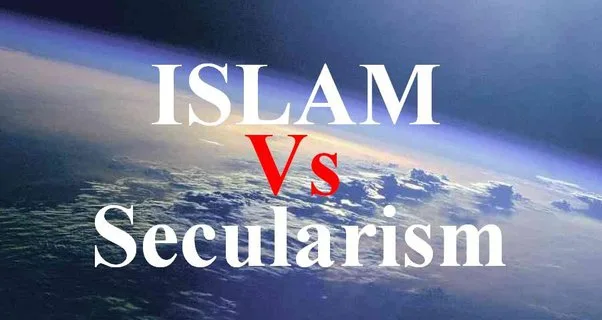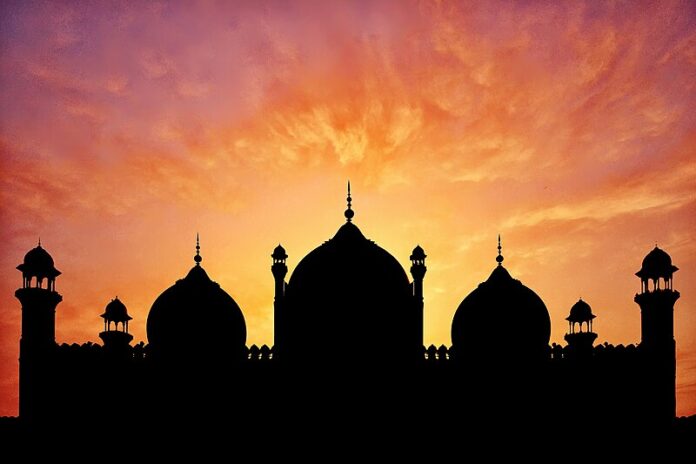
By Adil Khan
In recent times there have been raging debates concerning secularism and Islam and many especially the protagonists of secularism argue that Islam is an antithesis to the very idea of secularism and that secularism which happens to be an integral component of democracy and democratic values, Islam is not. But is it?
This idea that Islam is inimical to secularism is prevalent not just in non-Muslim countries but in some Muslim majority countries as well, where in recent times steps have been taken to ban and/or minimize Islamic practices and rituals, some of which have been in vogue for centuries especially on occasions such as Ramadan, the Muslim month of fasting.
During Ramdan Muslims congregate to break their fasts and pray, at home and at mosques and sometime outside mosques in public spaces. These are age-old practices. However, recently, in some Muslim majority countries, these practices have either been banned or discouraged – all in the name of secularism.
But are these practices or more broadly, is secularism incompatible with Islam? Let us begin by defining and explaining secularism.
Secularism
According to the Delhi University Professor of History, Romila Thapar, secularism implies, “the functioning of the universe and human society without involving divine intervention” and that “…secular does not deny religion, but at the same time does not give it primacy in the functioning of society.”
In other words, secularism is not a contra idea to religion. Secularism suggests that religion, any religion, should not be the governing parameter of societies and this is particularly crucial for those societies where a certain religion practices structured inequities through divine sanctions, and this is unacceptable.
Furthermore, like religion, secularism can become a problematic, especially when the concept gets either misinterpreted or deliberately misconstrued and this is often done in Muslim majority settings where the vested interest misinterprets and misconstrues the concept to suit and pursue their political mission where they use, wrongly, secularism to secure their political power by denigrating, marginalizing and suppressing the opposition, especially those who espouse and embrace Islam and Islamic identity as their political and ideological platform.
For example, in recent times, the ruling party in a Muslim majority country is seen to be consistently misinterpreting secularism to marginalize Islam and more importantly, suppress the political forces that prefer country’s long Muslim history and heritages, to define its unique and sovereign identity. Furthermore, it has also been argued and especially in a particular case, where the ruling party is said to be using the “secularism” card to suppress Islamist nationalism that pleases its external patron, which is a non-Muslim de facto theocratic state that has made denial of equal rights to and persecution of its minority, the Muslim, its policy, and governance preference.
Islam
There is widespread belief that Islam is an intolerant religion, and that non-Muslims in a Muslim majority “Islamic” state are treated, as an aspect of its tenet, as second-class citizens. How true is this notion? Is it true that Islam mandates to treat the non-Muslims in an Islamic state as second-class citizens? Let us explore.
In terms of inter-religious relationships and governance of societies in Islamic countries, Islam provides two guiding principles, and these are: (i) one, “La kum di numkum walia din” – your religion is to you, mine is to mine; and (ii) second, “Insaaf” (justness)! The first is clear about peaceful religious co-existence and the second one relates to – irrespective of differences of caste, colour, creed and religion – governance of citizens justly and fairly.
During the reign of the Second Caliph, Hazrat Omar (RA) when his commanders spread out and conquered territory after territory that had non-Muslims as inhabitants, the conquering commanders sought from the Islam’s Second Caliph his guidance as to how to govern these newly conquered territories whose inhabitants where non-Muslims, the Caliph said, “govern them with Insaaf (justness)” and they did.
Governance by the principle of “Insaaf” impressed the non-Muslims of these newly conquered territories so much that they voluntarily converted to Islam by thousands.
Indeed, Islam’s fast spread in its early days was mainly due to the application of the principle of Insaaf in governance, invoked by and during Hazrat Omar’s reign which also created a precedence for the Muslim majority/Islamic countries to follow.
In other words, if you believe in Islam and if you happen to oversee governance of a Muslim majority country, you ought to govern by the two of Islam’s core governing tenets, namely “La kum di numkum walia din” and “Insaaf”, meaning mutual respect and equal treatment of all which implies that there are no contradictions between secularism and Islam.
Now, do we have practicing examples of compatibility between secularism and Islam or more generally, are there societies where people can fully preserve and practice their respective faiths and not marginalized nor discriminated against nor persecuted because of their faiths?
Yes, there are. Examples of Nepal and Uzbekistan come to my mind.
Nepal and Uzbekistan
Nepal which happens to be the only constitutionally decreed Hindu state in the world is a fine example of secularism where Hindus, Christians, Muslims and Buddhists live peacefully with each other where the Nepalese practice their respective religions and rituals without any hindrance nor intimidation, neither from the government nor from people and nor any group given special favour nor are people denied their rights, based on their faiths.
In terms of example of a Muslim majority state where religion and secularism co-exist, Uzbekistan comes to my mind, a country that I visited recently (https://countercurrents.org/2019/07/my-recent-visit-to-uzbekistan-some-take-home-lessons-of-their-public-policies/).
Until 1991 Uzbekistan, a Muslim majority country (93% of Uzbekistan’s 93 million people are Muslims) was under the communist Soviet Union. During the Soviet era many of Uzbekistan’s Islamic practices were banned and Islamic relics destroyed.
However, after separating and gaining independence from the Soviet Union in 1991, Uzbekistan has restored many of the Islamic practices, and rituals though in somewhat of a regulated manner meaning that the country has made conscious decision to blend its dominant Islamic heritages with secular values. In Uzbekistan religious tolerance and balancing and mutual respect to each other’s religion, is strictly enforced. For example, expressions, displays and/or discussions of religions, Islam or otherwise, are not permitted in public space. Among other things, wearing of Burkas in public by the Muslim women is prohibited though hijabs are allowed. More importantly, equality of women, a Soviet legacy remains in practice.
Another interesting aspect of Uzbekistan’s religion – all religions – and secularism co-existence is that the prayer congregations can take place only in designated places, away from public view and for the Muslims, in registered mosques. Prayers in open spaces such as parks or in public places such as offices, streets etc. are prohibited.
In Uzbekistan there are both secular schools and madrassas. However, all schools including madrassas must follow secular curriculum up to grade 10. Those who wish to specialize in Islamic studies need to enroll at secondary level, after grade 10, at the designated Islamic Tertiary institutes where courses include both Islamic studies as well as secular subjects such as science and literature. The graduates of Islamic Institutes are free to choose any profession they wish to – secular or religious. However, should anyone wish to take the job of an Imam, he must have the degree from one of these government approved Tertiary Islamic Institute where in addition to Islamic studies, courses in science, literature and civics are taught that every aspiring Imam must study and pass with good grades.
Take-home Lessons
These examples, practices and theoretical precepts of secularism and those of Islam demonstrate that one does not challenge the other nor practice of one compromise the other. Islam and secularism are perfectly compatible and are in conformity with each other.
In other words, Romila Thapar’s idea of secularism, namely “the functioning of the universe and human society without involving divine intervention” and Islam’s two basic tenets of governance, namely, “Lakum Di Nukum Walia Din” (your religion is to you and mine to mine) and Hazrat Omar’s governing principle “Insaaf” are in sync and not in conflict with each other.
Indeed, the most ideal way to govern societies, Islamic or otherwise would be through the principles of justness (“Insaaf,” ) and religious tolerance (Lakum Di Nukum Walia Din), tenets that guarantee, as in secular democracies, fair and equal treatment of all citizens and protection as well as nurturing religious values and rituals through promotion of inter-faith tolerance and mutual respect.
The author is an academic and a former senior policy manager of the United Nations

